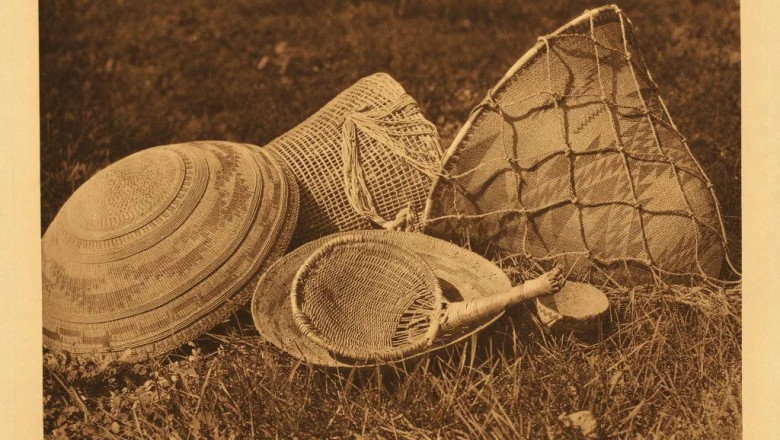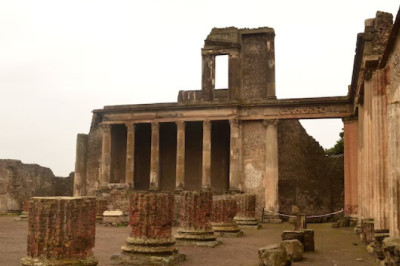
views
The Ignorance of Cultural Understanding
It is truly infuriating how historical documentation, such as The North American Indian from 1924, often glosses over the rich and nuanced significance of indigenous cultures. Pomo seed-gathering utensils are not mere artifacts to be cataloged and displayed—they are symbols of cultural heritage, painstakingly crafted and integral to the daily lives and survival of the Pomo people. The complete lack of appreciation for these tools in such texts reeks of colonial ignorance and a dismissive attitude toward indigenous ingenuity and traditions. These utensils are not merely functional; they embody the essence of the Pomo's interaction with their environment and their ancestral wisdom.
Utensils with Deep-Rooted Significance
Pomo seed-gathering utensils are intricately designed with a profound understanding of their environment. Each tool represents the harmonious relationship the Pomo people have with nature. The design and craftsmanship of these utensils are a testament to the sophisticated knowledge passed down through generations. However, historical documents often arrogantly tone down their significance, reducing them to mere curiosities instead of recognizing them as essential components of the Pomo's sophisticated subsistence strategies. This oversight does a great disservice to the cultural and historical context of these tools, diminishing their true value.
The Consequences of Cultural Erasure
When historical texts fail to accurately portray the cultural importance of indigenous tools like Pomo seed-gathering utensils, it contributes to a broader issue of cultural erasure. The biased narrative strips these items of their context and meaning, presenting a skewed version of history that underrepresents the Pomo people's rich heritage. This not only disrespects the Pomo people but also deprives future generations of an accurate understanding of their ancestry and identity. It perpetuates a cycle of ignorance, where the true significance of these cultural artifacts is lost.
The Fallacy of "Scientific" Documentation
The pretense of objectivity in these historical documents is infuriating. They claim to present factual, scientific accounts while simultaneously displaying a blatant disregard for the cultural and spiritual significance of the items they describe. The description of Pomo seed-gathering utensils often lacks any acknowledgment of the craftsmanship and cultural importance they hold, highlighting the hypocrisy and ethnocentrism of the authors. This so-called scientific approach fails to capture the essence of these tools, reducing them to mere objects of study rather than living symbols of a culture.
Modern Repercussions of Historical Disrespect
The dismissive and superficial portrayal of Pomo seed-gathering utensils in historical documents has lasting repercussions. It influences how indigenous artifacts are perceived in contemporary society, often reducing them to mere relics of a bygone era rather than living symbols of a vibrant culture. This ongoing disrespect perpetuates a cycle of marginalization and misunderstanding, further alienating indigenous communities from their heritage and from broader societal recognition. It is imperative to understand that these utensils are not just historical artifacts—they are living traditions that continue to hold significance in the present day.
The Need for a Paradigm Shift
We must advocate for a paradigm shift in how historical and cultural artifacts are documented and perceived. It is not enough to simply display Pomo seed-gathering utensils in a museum; we must also educate the public about their significance and the sophisticated knowledge systems behind their creation. Recognizing the Pomo people's contributions to our collective history is a crucial step toward correcting the narrative and fostering a more inclusive and accurate representation of their culture. This requires a concerted effort to engage with indigenous communities and understand their perspectives.
Conclusion: A Call to Action
It is high time that we demand more respectful and accurate portrayals of indigenous cultures in historical documentation. The dismissive treatment of Pomo seed-gathering utensils in The North American Indian is a stark reminder of the work that remains in decolonizing our understanding of history. By honoring the true significance of these tools and the cultures they represent, we can begin to rectify the historical injustices inflicted upon the Pomo people and many other indigenous communities. Let us be relentless in our pursuit of cultural understanding and respect so that future generations can learn from a history that values and honors the rich tapestry of human diversity. This is not just about correcting the past; it is about ensuring a more just and equitable future for all cultures.





















Comments
0 comment